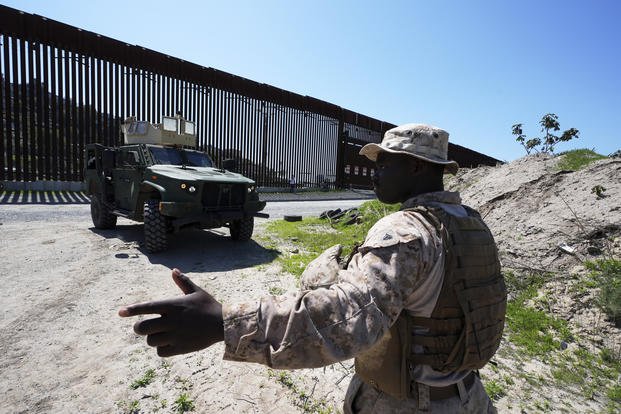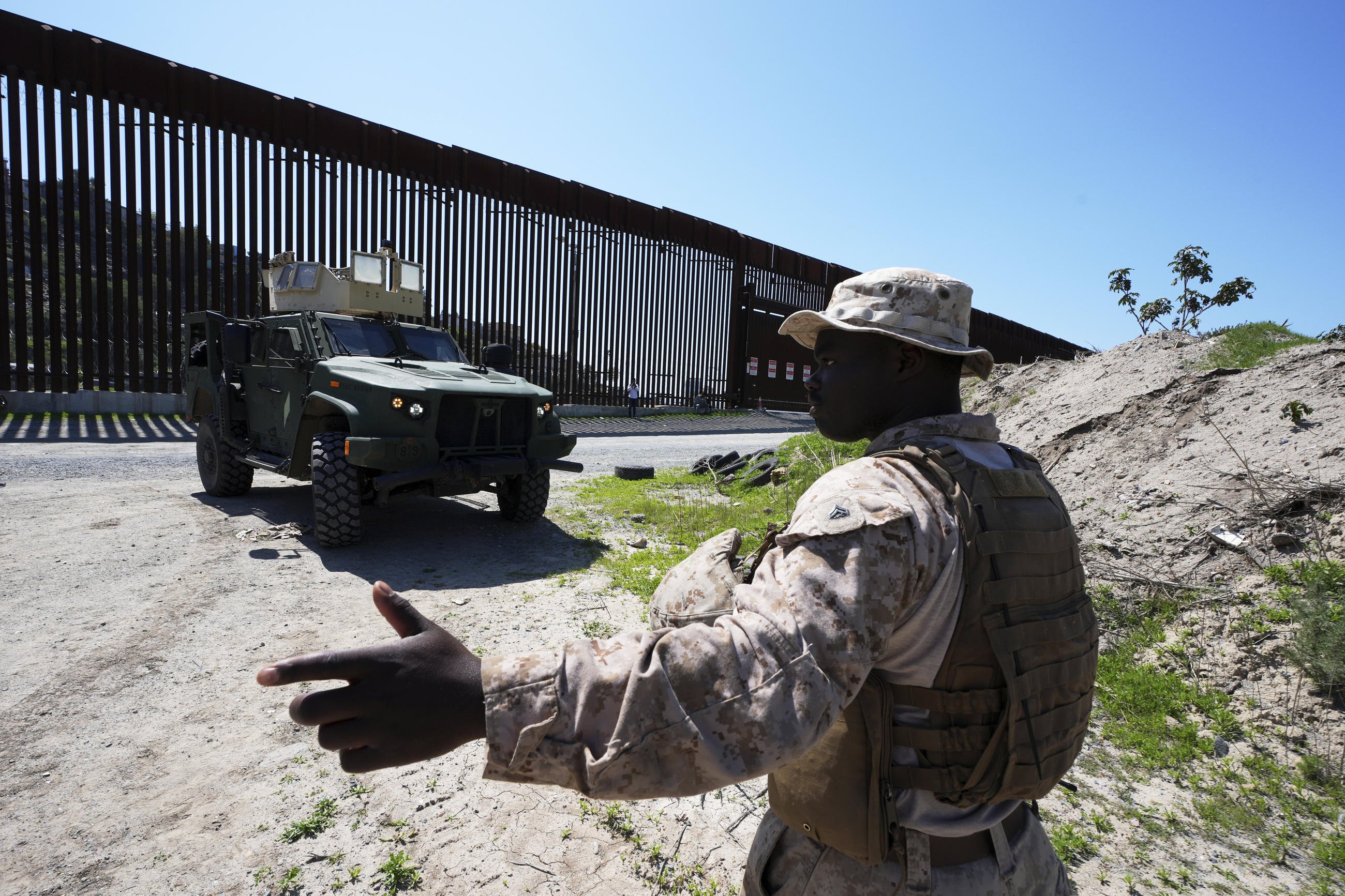The Trump administration’s latest move to militarize the southern border is nothing short of alarming. With over 10,000 troops now stationed along the U.S.-Mexico border, the stakes for civil rights and the rule of law have never been higher. As reported by CalMatters, dozens of Marines are now actively patrolling the border in eastern San Diego County, marking a significant shift from their previous role limited to logistical support.
Military Presence Violates Democratic Norms
This unprecedented deployment raises urgent questions about the militarization of domestic law enforcement. According to Just Security, using active-duty military personnel for immigration enforcement contradicts the Posse Comitatus Act of 1878, which was designed to keep federal troops out of civilian law enforcement. Yet, under Trump’s directive, this law is being sidestepped by designating the border as a "military installation." This blatant disregard for democratic norms signals a troubling shift towards authoritarianism.
Fear as a Tool of Control
The deployment is not merely about security; it’s a calculated strategy to instill fear among immigrant communities. California officials, including Governor Gavin Newsom, have voiced concerns that this militarized approach is less about protecting borders and more about creating an atmosphere of intimidation. As stated by Diana Crofts-Pelayo from Newsom"s office, “This campaign is not about security—it’s about fear.” The chilling reality is that these tactics could lead to increased violence against vulnerable populations, especially as military personnel lack the necessary training to handle sensitive immigration issues.
\n\n
How Trump Is Leaning on the Military to Fulfill His Hopes of ...
Escalating Violence and Human Rights Violations
The presence of Marines and soldiers has already led to reported incidents of harassment and intimidation against farmworkers and other undocumented immigrants. Reports indicate that Border Patrol agents have been pursuing individuals in unmarked vehicles in urban areas far from the border, creating an environment where people fear for their lives simply for trying to earn a living. This escalation in enforcement has dire implications for civil rights, as many migrants are now forced to take more dangerous routes across the border, leading to increased fatalities, as highlighted by the Mexican government.
Legal Challenges Loom
Legal experts are raising alarms about the implications of this military deployment. Professor Kevin Johnson of UC Davis School of Law emphasizes that the potential for deadly force being used by troops against migrants is a real concern. The lack of clarity around the engagement rules for military personnel at the border poses a significant risk. As he noted, “It’s like a ticking time bomb.” The ramifications of such a militarized response could lead to catastrophic outcomes for migrants attempting to cross the border.
\n\n
How Trump Is Leaning on the Military to Fulfill His Hopes of ...
The Broader Political Context
This military buildup is not an isolated incident; it is part of a broader trend where the Trump administration has consistently used immigration as a wedge issue. The former president"s national emergency declaration upon taking office set the stage for increased military involvement at the border, fostering an environment where civil liberties can be easily compromised. With Congress largely absent in holding the executive accountable, the unchecked power being wielded raises serious questions about the future of democracy in the United States.
As the situation continues to evolve, it is essential for advocates and citizens alike to remain vigilant. The fight for civil rights and protections for all individuals, regardless of their immigration status, must be at the forefront of our collective consciousness.

![[Video] Federal officers deploy sting balls and flash grenades at Whipple Building](/_next/image?url=%2Fapi%2Fimage%2Fthumbnails%2Fthumbnail-1768340555229-vhfcc-thumbnail.jpg&w=3840&q=75)
![[Video] Crowd-control weapons used in Minneapolis as anti-ICE protesters attack police vehicle](/_next/image?url=%2Fapi%2Fimage%2Fthumbnails%2Fthumbnail-1768336302231-akxf7s-thumbnail.jpg&w=3840&q=75)

![[Video] Protests erupt in Minneapolis after ICE detains teenager, multiple arrests made](/_next/image?url=%2Fapi%2Fimage%2Fthumbnails%2Fthumbnail-1768331835371-z9ylqg-thumbnail.jpg&w=3840&q=75)


![[Video] Gunfire between Iraqi security forces and Sadr militias in Baghdad](/_next/image?url=%2Fapi%2Fimage%2Fthumbnails%2Fthumbnail-1768343508874-4redb-thumbnail.jpg&w=3840&q=75)
